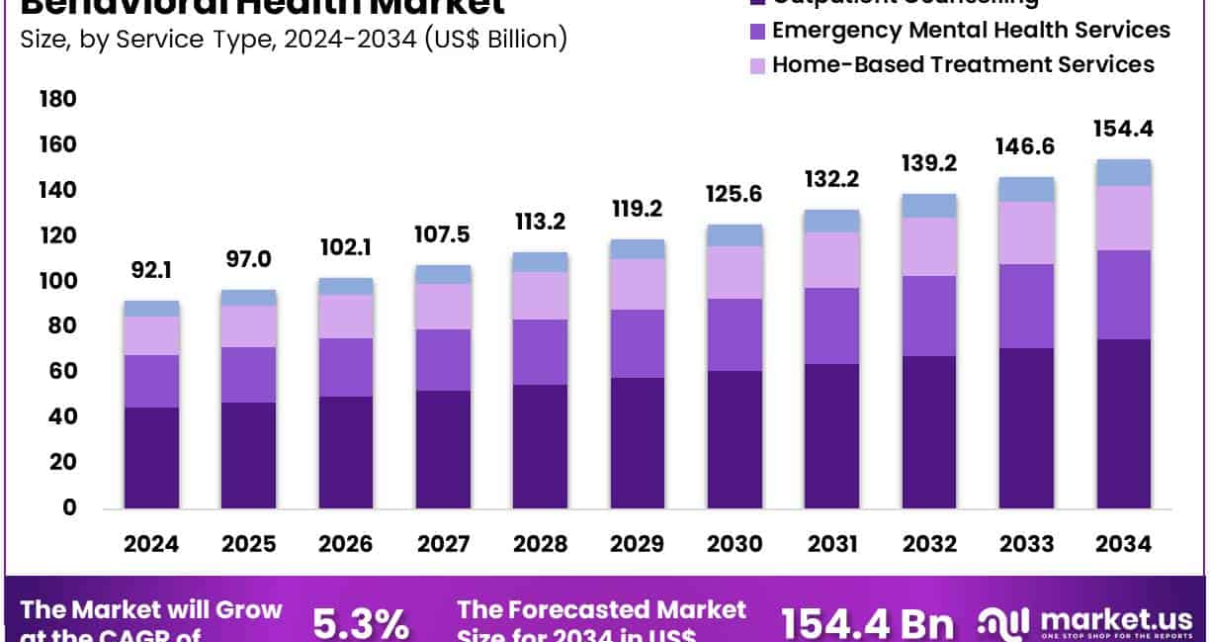The Global Behavioral Health Market is expected to reach approximately US$ 154.4 billion by 2034. This is up from US$ 92.1 billion in 2024. The market is growing steadily with a CAGR of 5.3% from 2025 to 2034. North America leads this market, holding more than 45.3% share in 2024. The region’s revenue stood at US$ 41.7 billion that year. These figures highlight the strong and sustained demand for behavioral health services globally.
Rising awareness of mental health issues is a key growth driver. More people recognize the importance of mental well-being and seek help. Behavioral health services include treatment for mental disorders, substance abuse, and emotional challenges. These services aim to improve the overall quality of life. Conditions such as depression, anxiety, and stress-related illnesses are becoming more common. This increases the need for accessible mental health care solutions worldwide.
Stigma around mental health is gradually decreasing. As a result, more individuals feel comfortable seeking help. This has increased the demand for behavioral health interventions. Telehealth and digital health platforms play a significant role here. These technologies make therapy and counseling more accessible and convenient. Patients can now access mental health support from their homes. This trend is expected to continue driving market growth in the coming years.
In July 2024, NextGen Healthcare launched the first-ever Center of Innovation (COI) in partnership with Mental Health Corporations of America. This COI aims to promote best practices in behavioral health care. It also provides educational resources to professionals in the field. The initiative shows a growing focus on enhancing care delivery and workforce training. Such collaborations help improve patient outcomes and advance the industry’s knowledge base.
Investment in research and technology is fueling market expansion. AI-driven tools enable personalized mental health care and digital therapy programs. Wearable devices allow real-time monitoring of patients’ conditions. These innovations improve treatment efficiency and accessibility. The behavioral health market holds promising opportunities to develop more effective care models. This benefits a broader patient base by enhancing the quality and reach of mental health services.




